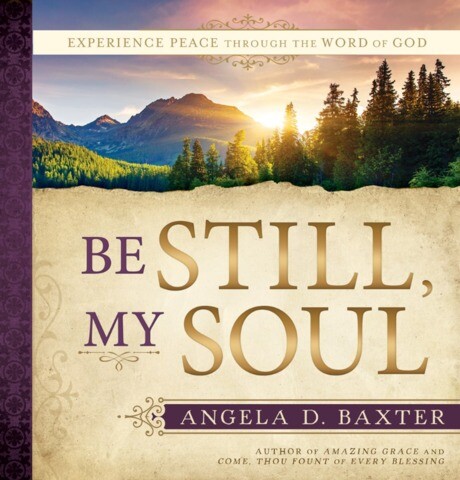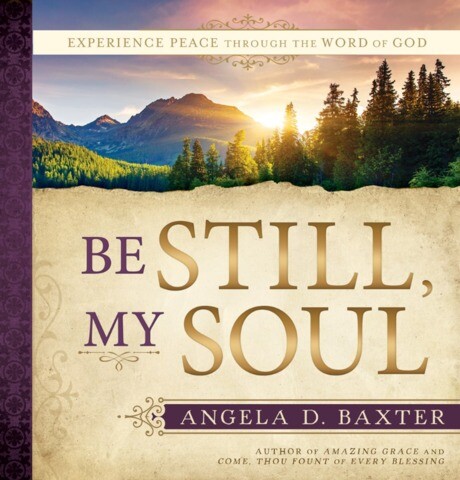
Peace can sometimes seem like an elusive concept. It’s easy to get caught up in the busyness of our day-to-day lives and feel overwhelmed with all the demands on our time. Between work, school, church callings, and our family and friends, it can be hard to find a good balance and to keep ourselves spiritually centered. We may feel like our lives are full of everything but peace.
Many people also have challenges they deal with on a daily basis like loneliness or anxiety, chronic health problems, debt, struggling with personal weaknesses or an addiction, mourning the death of a loved one, or even facing a spiritual crisis. We all carry burdens that those around us may not even be aware of. Our souls yearn for peace, but so often we cannot find that haven from our trials we are searching for. The truth is we may not be looking in the right places, or in the most effective way.
One of the most lasting and powerful ways to experience peace is through the word of God, which includes so much more than our triple combination.
With this in mind, consider the following five ways you can experience peace through the word of God:
1. Make space in your life for personal, spiritual experiences.
As you search for personal peace, it's important to take a step back and reflect on your life and your priorities. There are so many good things we can fill our time with, but we need to be careful to not over-schedule our lives to the point where we neglect the things that matter most—things that would bring us greater happiness and peace. Part of finding the balance we seek is found in making space in our lives for personal, spiritual experiences—time to “be still, and know that I am God” (Psalm 46:10).
Take time to read, study, and ponder your scriptures and what they mean in your life. Take your worries and anxieties to God in prayer and pray fervently with your whole heart. Listen for God’s answers to your prayers and be patient if the answer is a long time in coming. Serve others willingly and out of genuine love. Reread your patriarchal blessing. Go out into nature and experience the majesty and beauty of God’s creations. Attend the temple and your church meetings and really listen to the sacrament prayers each week. Live spiritually and intentionally.
These small and simple things take effort, and you will likely not have a life-changing experience every time. But they will invite the Spirit into your life. The more you make space for personal, spiritual experiences as you study the scriptures, hymns, or your patriarchal blessing, the more peace you will invite into your life. And over a lifetime, those sacred experiences strengthen your testimony and can add up to a life of devotion.
2. Focus on your personal relationships with Heavenly Father and Jesus Christ.
Elder M. Russell Ballard once said, “we are all the spirit sons and daughters of a loving God who is our Father. We are part of His family. He is not a father in some allegorical or poetic sense. He is literally the Father of our spirits. He cares for each one of us” (“The Atonement and the Value of One Soul,” Ensign, May 2004). Our Father in Heaven and Jesus Christ love each of us perfectly and want to be actively involved in our lives, but ultimately we must be the ones to invite Them in. We can find peace when we build our personal relationships with God and Jesus Christ by immersing ourselves in the word of God. Begin by looking at scripture study as a way to come to know God better and to learn how you can become like Him. Read about the life of Jesus Christ, His divine attributes and character, and look for ways you can follow Him in your daily life. Pray to have a conversation with God, to listen as well as to ask, and to humbly seek to know God's will for you and your life.
Trust that He will guide you to become more the person you're meant to be. Knowing this and seeing Christ as, first and foremost, your Savior and Redeemer but also as a divine Elder Brother gives you a starting point to better know and understand how and where you fit into God’s plan, your purpose on earth, and the love both God and Christ have for you. As you come to know Them through study of Their words and sincere communication with Them, your faith in and love for Them will increase and your relationship with Them becomes much more personal.
God is not just a supreme divine being but your loving Heavenly Father. Christ is a savior of all, but also your Savior. The more you develop this godly perspective and the more you involve Them in your life, the more you can develop confidence in your eternal identity and experience peace.
3. Look for reminders of God's promises and trust that He will keep them.
The scriptures are full of the promises God has made with His people and with particular individuals, from Adam and Eve to the Israelites to today. One way to experience peace is by looking for reminders of God’s promises—in the scriptures, in the lives of those around you, and in your own life. Ponder on the promise made in the sacrament prayers “that they may always have his Spirit to be with them” (Moroni 4:3, See also Moroni 5:2). When you read your patriarchal blessing, receive a priesthood blessing, or receive personal revelation, look for promises He’s making specifically to you. Usually the promise or covenant will come with a blessing of joy and peace for those who are faithful. Hold fast to the promises God has made you. Trust in Him and don’t lose faith, because God will keep all His promises.
4. Use God’s words and promises to face life's difficulties with patience and faith.
Often the difficulties we face in this life try our faith. It may be hard to stay close to the Spirit when we are focused on things that are not going the way we expected, and when we are dealing with something that is particularly challenging, we may wonder what we did wrong or why God isn’t answering our prayers.
We need to accept that trials big or small are a part of life. Some trials are the result of sin or the result of choices we or others have made, some are sent by God to test us, and some are a naturally occurring part of mortality. Some trials may last a long time, and some may never be resolved in this life. As it says in the hymn “Be Still, My Soul”:
“With patience bear thy cross of grief or pain.
Leave to thy God to order and provide;
In ev’ry change he faithful will remain.”
The truth is that peace is not dependent on our circumstances but comes as a result of our discipleship. The more we rely on the word of God and the promises God has made to us, the more peace and reassurance we can feel. As we approach our difficulties with faith and patience, we continue to trust in God and His love for us even in life's darkest times. We can see examples of this in the scriptures and latter-days. Think of Joseph Smith, Nephi, or Gordon B. Hinckley. As you study their words and the words of Christ spoken through them in times of trial, we too can know the truth of what Christ has said, “These things I have spoken unto you, that in me ye might have peace. In the world ye shall have tribulation: but be of good cheer; I have overcome the world” (John 16:33).
5. Have hope that “all things shall work together for your good.”
In the Doctrine and Covenants we read, “Search diligently, pray always, and be believing, and all things shall work together for your good, if ye walk uprightly” (D&C 90:24). Sometimes we don’t feel peace because we feel like we fall short of where we should be or where we want to be. But we can be happy and find peace regardless of our circumstances. Remember that with God, every experience in your life can be for your good and work toward your salvation. As Apostle Orson F. Whitney said,
“No pain that we suffer, no trial that we experience is wasted.... All that we suffer and all that we endure, especially when we endure it patiently, builds up our characters, purifies our hearts, expands our souls, and makes us more tender and charitable, more worthy to be called the children of God … and it is through sorrow and suffering, toil and tribulation, that we gain the education that we come here to acquire”
(Quoted by Spencer W. Kimball in Faith Precedes the Miracle (1972), 98).
Finding peace takes faith, patience, effort, and having a more godly perspective of life, but the promise of it is there and available to all through the word of God. He will work with us where we are. And if we bring our broken hearts and the broken parts of our lives and turn them over to Him, He can heal them—heal us—and help us find more happiness, joy, and peace than we ever thought possible. Remember Christ’s message for us: “Peace I leave with you, my peace I give unto you: not as the world giveth, give I unto you. Let not your heart be troubled, neither let it be afraid” (John 14:27). Amid the chaos of the world, on our darkest days and through our hardest trials, we can remember that God is faithful and the Lord is always “on [our] side”(“Be Still, My Soul,” Hymns no. 124).
Lead image from Getty Images
For more help on experiencing peace check out Angela D. Baxter's book, Be Still My Soul: Experience Peace through the Word of God, available at Deseret Book stores or on deseretbook.com




